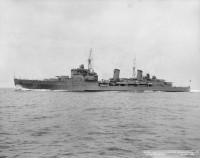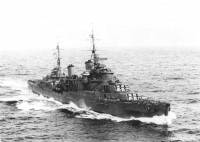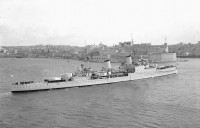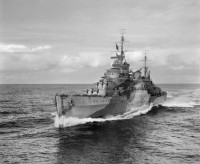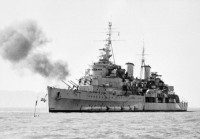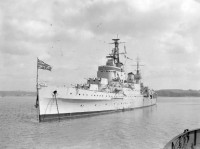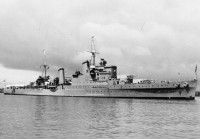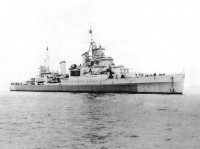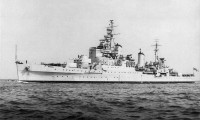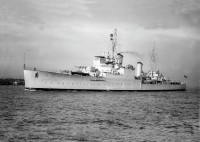Легкие крейсеры типа «Таун» (1936)
Основная информация
Главные размерения
Машина
- 4 * Parsons steam turbines
- 4 * Admiralty 3-drum boilers
- 4 * shafts
Персонал
Боевые силы и средства
Radar
Southampton and Gloucester classes, as designed:
- 12 * BL 6 in (152 mm) Mark XXIII guns (4x3)
- 8 * QF 4 in (102 mm) Mark XVI guns (4x2)
- 8 * QF 2-pounder (40 mm) Mark VIII pom-pom guns (2x4)
- 8 * .5 in (12.7 mm) Vickers machine guns
- 6 * 21-inch (533 mm) torpedo tubes (2x3)
Edinburgh class, as designed:
- 12 * BL 6-inch (152 mm) Mark XXIII guns (4x3)
- 12 * QF 4-inch (102 mm) Mark XVI guns (6x2)
- 16 * QF 2-pounder (40 mm) Mark VIII pom-pom anti-aircraft guns (2x8)
- 8 * .5-inch (12.7 mm) anti-aircraft machine guns (2x4)
- 6 * 21 in (533 mm) torpedo tubes (2x3)
- 2 * Supermarine Walrus flying boats (removed in the latter part of WWII)
- 1 * catapult
The Town class was a 10-ship class of light cruisers of the Royal Navy. The Towns were designed to the constraints imposed by the London Naval Treaty of 1930. The ships were built in three distinct sub-classes, the Southampton, Gloucester and Edinburgh classes respectively, each sub-class adding on further weaponry.
The first Town-class ship was launched in 1936 and commissioned in 1937, just two years before the outbreak of war. The class saw much service during the Second World War and took part in many famous actions, such as the sinking of the German battleship Scharnhorst. Four, Edinburgh, Gloucester, Manchester, and Southampton, were sunk during the war. The surviving ships continued in active service to the end of the 1950s, some seeing action during the Korean War. The last Town-class ship to be scrapped was Sheffield in 1967. One ship of the Town-class — Belfast — remains, moored on the River Thames in London as a museum-ship of the Imperial War Museum, a role she has performed since 1971.
Корабли10
- Комментарии
 ru
ru en
en uk
uk
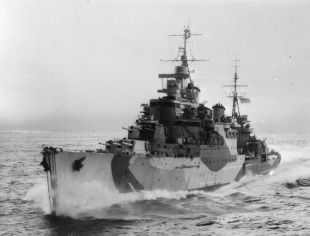
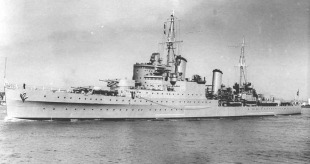
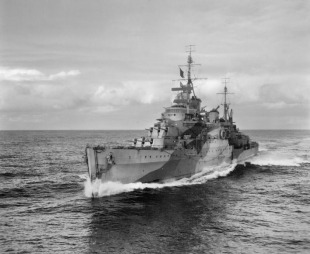
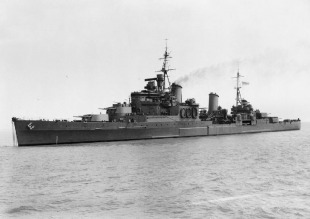
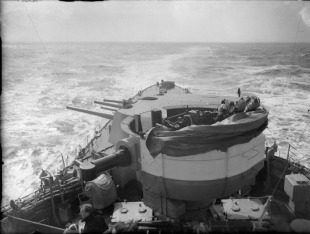
 Королевский военно-морской флот Великобритании
Королевский военно-морской флот Великобритании